The Department of Life Sciences SIM (Mechanized Pollination System) project for optimizing the pollination of olive plants been funded
The research work in the University’s laboratories meets the market and the business world through the agreement signed between the University of Siena and Farming Future – the National Technology Transfer Hub of CDP Venture Capital SGR – for the development of new Agrifood tech start-ups.
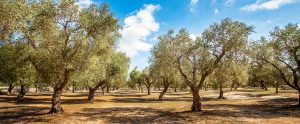
The preliminary scouting and proposal work in the departments by the Liaison Office and the Siena University Santa Chiara Lab led to the selection of the SIM (Mechanized Pollination System) research project for optimizing the fertilization process in olive plants, coordinated by Professor Giampiero Cai of the Department of Life Sciences.
For the development of the project, the group received 300,000 Euros in funding from Farming Future, an initiative that CDP Venture Capital launched together with entrepreneurial partner Toseed with the aim of increasing the level of technological maturity and establishing a start-up that will involve reference university researchers.
We compared the perspectives of the key players in this interesting partnership between university and business.
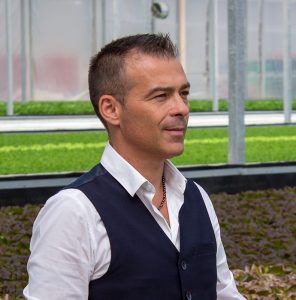
Q: What is your goal in working together?
A: Luigi Galimberti, Chairman of ToSeed, promoter of Farming Future together with CDP Venture Capital SGR
“With the establishment of Farming Future, a national technology transfer hub specializing in investment activities and entrepreneurial empowerment in the Agrifood tech sector, we hope to fill an existing gap in our country and develop technology transfer also in this sector by enhancing inventions, discoveries and patents derived from Italian research in Agrifood Tech. The goal is to provide universities not only capital but also experience and best practices in establishing businesses”.
A: Giampiero Cai – Siena University’s Department of Life Sciences
“We are committed to developing an innovative device for optimizing the olive pollination process. This will help facilitate fruit set, an essential requirement for more stable and greater oliveproduction. We are aware that environmental and climatic variables greatly affect the yield of olive trees. Finding a solution to mitigate the impact of these variables is therefore of paramount importance. Our role is crucial in the creation of a mechanized pollination system. This technology involves pollen retrieval and the dispersal of previously collected and correctly stored pollen to ensure its viability and functionality. We will ensure that pollen is evenly distributed over the plants, thus promoting high reproductive success. Our priority is to ensure that every step of the process is handled with the utmost care and precision”.
Q: How will the project be developed?
A: Luigi Galimberti
“The projects stem from university research completed in recent years, envisioning a specific point of arrival in the market. The ideal point of arrival is the resolution of a specific problem: in this way the project takes shape, driven by the needs of businesses and operators, so that the resulting start-up can be successful and have an impact on the ecosystem and the market”.
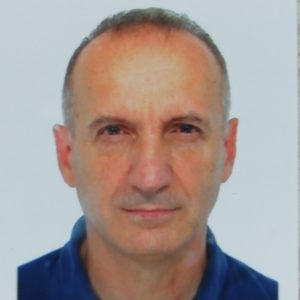
A: Giampiero Cai
“The project for developing a mechanized pollination system involves different operational phases. The initial phase involves the design and implementation of a machine prototype. This prototype will be subject to progressive improvements over months, based on inputs from testing both in the laboratory and directly in the field. The machinery will be manufactured by leading companies in the field. During this phase, it will be our responsibility to ensure that pollen dispersal occurs accurately and effectively. The second phase of the project will involve the practical implementation of the machinery in the field, within carefully selected olive groves. We will use pollen previously collected and suitably stored, as well as pollen collected immediately prior to dispersal. At this stage, our goal will be to verify correct pollination. The third and final phase of the project will be devoted to verifying reproductive success, i.e., olive production, focusing on the yield. This phase will be crucial in determining the effectiveness of our machinery and the pollination process”.
Q: What sparked your interest in collaborating?
A: Luigi Galimberti
“Some universities more than others are rooted in the region and are familiar with its problems, which influence the work of researchers and their choices. One research in particular caught our attention: a project on the pollination of olive trees, an important sector for us and on which we put the spotlight. After meeting with the research team, we realized that there was much more than a scientific publication: there was human potential and a willingness to do more. These are essential elements to make things happen, but more importantly to attract capital”.
A: Giampiero Cai
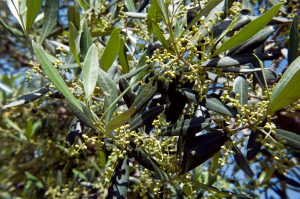 “My extensive experience in the field of pollen, acquired over many years, has enabled me to develop a deep understanding of its characteristics and methods for its management. I have acquired specific skills regarding the requirements for its proper storage and functioning, the result of an interest rooted in past experiences. Recently, together with the other people involved in the project (Marco Romi, Veronica Conti and Sara Parri), we had the opportunity to participate in regional projects focused on the pollination of olive trees using drones. These experiences further enriched our understanding, allowing us to assess the strengths and potential weaknesses of a mechanized olive tree pollination system. In these projects, we enthusiastically applied our previously acquired skills and knowledge, thus contributing to the success of the initiatives. Our past experience has proven to be a key asset, guiding our approach and strategy in mechanized pollination”.
“My extensive experience in the field of pollen, acquired over many years, has enabled me to develop a deep understanding of its characteristics and methods for its management. I have acquired specific skills regarding the requirements for its proper storage and functioning, the result of an interest rooted in past experiences. Recently, together with the other people involved in the project (Marco Romi, Veronica Conti and Sara Parri), we had the opportunity to participate in regional projects focused on the pollination of olive trees using drones. These experiences further enriched our understanding, allowing us to assess the strengths and potential weaknesses of a mechanized olive tree pollination system. In these projects, we enthusiastically applied our previously acquired skills and knowledge, thus contributing to the success of the initiatives. Our past experience has proven to be a key asset, guiding our approach and strategy in mechanized pollination”.
Q: What are your expectations?
A: Luigi Galimberti
“There are many expectations. The first is that, regardless of the final result, we would like this practice to become the norm so that other similar projects can be pursued, thereby increasing the chance of success. Above all, we hope that this experience will become a part of the culture of researchers, students and businesses in the area. We also trust that the expected scientific results will be confirmed so that one or more patents can be obtained and a start-up can be created, one that will grow, hire employees, do business and continue to develop. Only then will we have fulfilled the mission of technology transfer and enhancement”.
A: Giampiero Cai
“The importance of the expectations cannot be underestimated. Our main goal is to optimize the fertilization process of olive plants by focusing on the ‘pollen’ parameter. This involves increasing the percentage by which pollen fertilizes another plant. We strive to provide farmers with an easy- to-use device that allows optimal pollen distribution on the plants. Our intent is not to complicate farmers’ work, but to simplify it. This results in increased productivity of olive plants, or at least in its stabilization, even under adverse and unpredictable weather conditions. Olive production, and consequently oil production, is an important economic sector in Tuscany and other Italian regions. We nurture the ambition to contribute to the stabilization, if not increase, of oil production. Our aspiration is to support the local economy through innovation and efficiency”.
———-
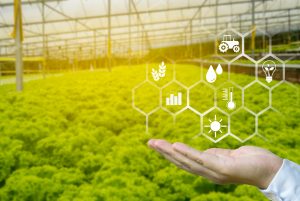 Farming Future is the National Technology Transfer Hub dedicated entirely to the funding and entrepreneurial enhancement of the results of scientific and industrial research activities in Agrifood Tech, established through the initiative of CDP Venture Capital.
Farming Future is the National Technology Transfer Hub dedicated entirely to the funding and entrepreneurial enhancement of the results of scientific and industrial research activities in Agrifood Tech, established through the initiative of CDP Venture Capital.
The scientific promoters of the Hub are University Federico II of Naples – which brings to the Hub its expertise and synergies with the National Agritech Centre – and other leading universities active in the
sector, including the University of Padua, the University of Bologna, the University of Turin, the University of Milan, the University of Siena, the University of Tuscia and the University of Bari.
Farming Future also benefits from the involvement of To Seed Partners, a company with a significant track record of founders in early-stage investments and startup activities, which is a co-investor and entrepreneurial partner of the Hub, supporting scouting and due diligence activities, as well as contributing to the provision of value services for portfolio initiatives.

